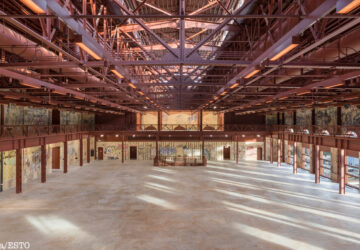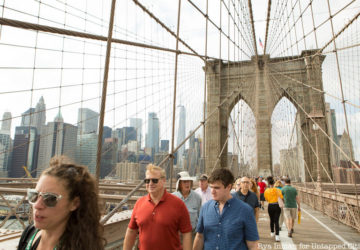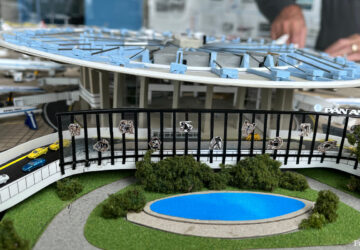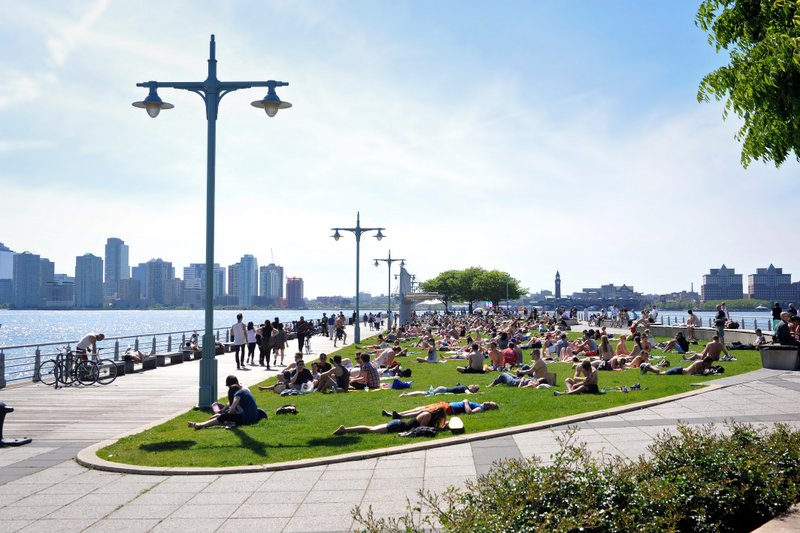
Hudson River Park, the waterfront park along Manhattan’s west side was founded in 1998 and in June, the park will be celebrating its 25th anniversary. The park, which sees 17 million visitors a year, functions not only as a vital recreational space and community asset, but also as an evolving natural resource (oysters! fish! birds! waterfront sanctuary!). We recently toured the park with Connie Fishman, Executive Director of Hudson River Park Friends, who was one of the founding members of the park, to learn about its secrets and fun facts:
10. Hudson River Park is the Longest Riverfront Park in the United States
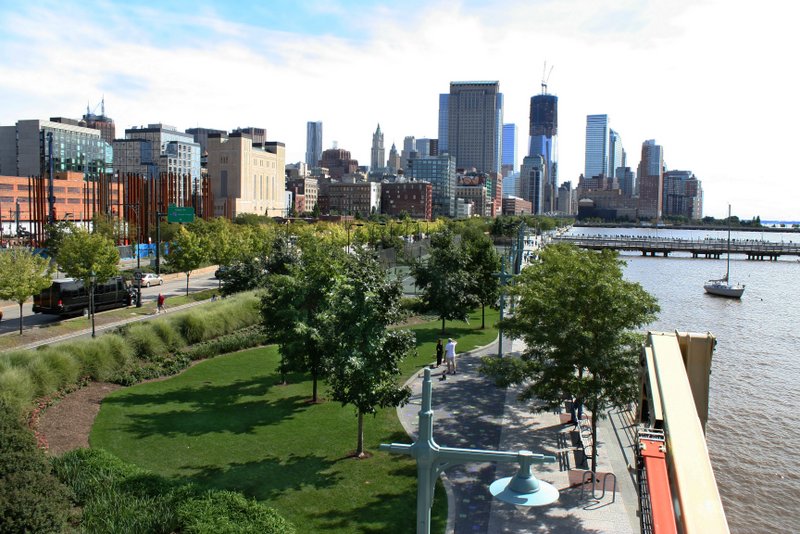
At 4.5 miles, Hudson River Park holds the title for longest riverfront park in the United States. It stretches from Chambers Street to 59th Street, serving the neighborhoods of Tribeca, Greenwich Village, Meatpacking, Chelsea, Midtown, and Hell’s Kitchen. The 4.5 acres encompass 550 acres of parkland, including 400 water acres. This makes it the second largest park in New York City, after Central Park and longer than other riverfront parks around the country, including Mud Island River Park in Tennessee, Santa Fe River Park in New Mexico, and Smale Riverfront Park in Cincinnati, OH.
Hudson River Park is notable for its diversity of activity, ranging from bicycle and pedestrian paths, recreational piers, restaurants and bars, sports facilities (including batting cages, beach volleyball, trapeze, and tennis courts), kid-friendly options (playgrounds, carousel, mini golf course), and water sports (kayaking, sailing). The bikeway was deemed the busiest bikeway in America, and extends even further south to Battery Park. For the history buffs, there is plenty as well, keep on reading to discover!
Hudson River Park was established through the Hudson River Park Act, and is run through a partnership between the Hudson River Park Trust and New York City and State. That being said, it relies solely on private funds to maintain the park and produce programming and public events.

